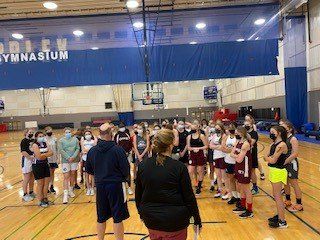The Death of Excellence
Is status more important then improvement?
Everyone wants to be elite. They want the newest hottest item, they want the coolest thing, they crave the recognition and status that is conferred on those that have it. Sport is no different. What program or club has the best gear? Where is my child able to be recognized as the special player that they clearly are? We all seek and crave that recognition of the specialness that we surely possess, either as a sign of acceptance or sometimes just as a sign that we are better then those around us. We will take this recognition from anyone who is willing to confer it upon us. The cost of this situation is, simply put, excellence. We are not seeking the ways and means to be better, just the recognition that we are better. We are not looking for improvement, merely recognition.
When we label things, we are trying to create a system in which people strive to reach the top. When we create elite teams, or high performance centers the goal is to create a system in which people are striving to improve and reach a higher goal. We are hoping to foster better performance through motivation to reach a higher level. The athlete sees what is necessary from a fitness, performance and skill level to be considered elite and begins the process of self-improvement that will allow them to arrive at that destination. The flaw in this system is when the designation overtakes the goal. The desire to be considered elite is so strong that I will take it from whomever or where-ever it can be conferred. The process of improvement has been supplanted by the goal of being considered better, if I happen to improve along the way that is just a happy by-product. Meanwhile the goal of excellence dies a slow and anguished death.
Excellence in and of itself is not the end goal. The end goal needs to always be learning and improvement. People in general and athletes in particular love to learn new things and see themselves improve. Who has not been around a young child who is absolutely elated when they learn something new and cannot wait to explain, often in minute detail, everything they have learned? This sense of joy and wonder that surrounds learning is crucial in any quality program, whether academic or sport related. The first, and really in most cases only, thing you should be looking for in any program that you enter your child, is whether they have a real plan for your child's improvement. Whether that is moving them from a novice to a beginner, or whether that is moving them a very good player to a great one. It is not the status involvement in that program can confer, it is whether they can help your child improve. Development needs to be the goal with status being the side effect, rather than the other way around.
We live in a proprietary world, we all want the new iPhone, even if the new iPhone does not play well with others. We will hear from people how this or that athlete is "their" player, or that the athlete is best served listening to them and not others. There are occasions when a coach or player do have a bond or share a similar view and that relationship is very beneficial, usually to both. It is also perfectly fine for an athlete to outgrow a coach or program. If you have gained all the knowledge that you can in one situation it is neither disloyal nor ungrateful to look at other situations and see what they can teach you. If the goal is improvement, then seeking new information and other ways of learning all help foster that goal and growth. I have always been happy when my athletes gain a sense of independence from me, where they can feel like they have gained the knowledge they need from me and now want to see what else is out there. For some they will return because they feel a sense of connection to how things are done by me, or they like the level of effort demanded, others will remain grateful for what they were taught but will seek the next challenge. Being able to admit where you fit in the learning curve and the clientele you can best serve is important both to the athletes learning and your own happiness. As a parent having a plan for your child's development, independent of any status or recognition is crucial.
Because, as humans, we are wired to seek acceptance, there will always be a draw attached to the recognition certain words confer. "Elite" is one of those words. Don't we all want to be on the "A" team, what status or recognition does "B" team confer? Development and playing time are closely linked. It is hard to improve if we do not play. Finding a level of competition that allows us to be pushed while also developing confidence in our abilities is similarly important. Often, the best solution is a mixture of these situations. Finding competition against older, bigger or better players that can help me eliminate bad habits and build good ones is positive. If I can simultaneously also enjoy some competition more of my level, I can build or maintain the confidence in my abilities that is crucial to having success. Ignoring labels and focusing on improvement allows the athlete to focus on the opportunities that will foster development and feel good while doing it. The athlete that is constantly developing will be more likely to reach higher goals then the athlete who is focused on how they are looked at or who exactly is around them and what that says about who they are.
The famous martial artist Bruce Lee always cautioned about what he called the "graspiness" of desire. What we want is not always what we need. If you are interested in true excellence and as an athlete, or as a parent trying to help guide an athlete, then you need to leave your desires aside. Leave aside the need for recognition or the name that comes with it. Focus on where and with whom you can improve and follow that path. It may not initially provide you with that ego boost that comes with the fancy gear or the Elite name, but it will help you reach your goals and make you a better person and player. As a coach do not look to control your athletes or believe that if they are elite in your program that is better then another level in another program. Instead have a sense of where you fit in the development wheel of your area and what athletes you can most help, and also when an athlete needs to move to another situation to continue to improve. If our goal is excellence, we will not achieve it by conferring titles, only by working to be better.
Join Our Mailing List
Thank you for joining the NLBA Mailing List.
Stay tuned for some great content from the NLBA.
Oops, there was an error submitting your message.
Please try again later.

